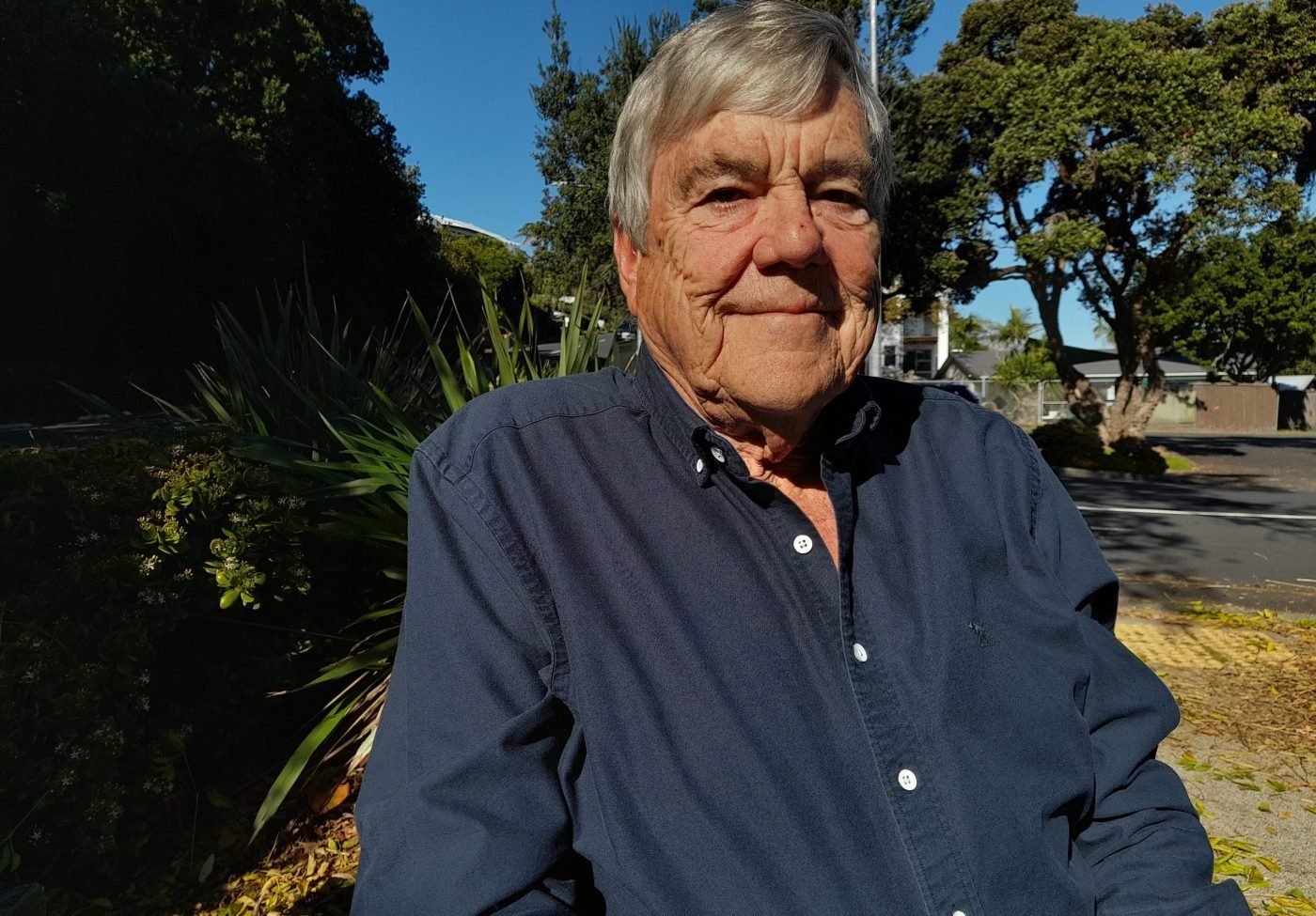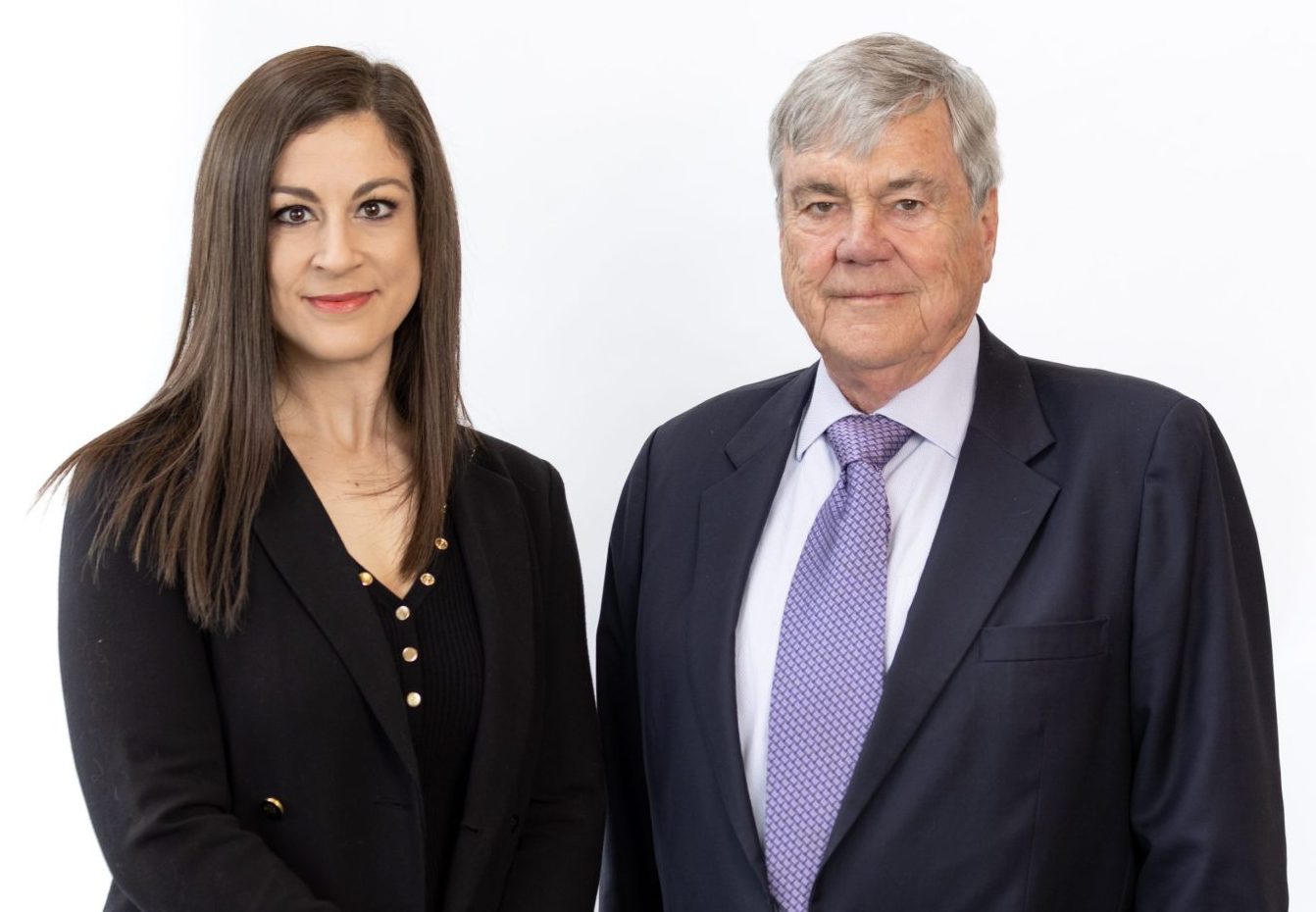
It was well overdue that Kelly Flavell and PJ Taylor, legal man-about-Howick and seasoned newshound respectively, had a good long talk. They’ve had brief chats down the years, and Kelly’s always been very supportive of community initiatives especially with the Times, and East FM. Kelly’s a radio man, after all, remembered as a popular, long-running legal expert on talkback radio with Radio Pacific and Newstalk ZB. He’s just retired, but as is with professionals in the golden age, they ease back gradually. He’s down to one day a week practicing at the firm that’s carried his name for 50 years.
Where were you born and grew up?
Born in Christchurch and stayed there until I was five. Then we went to a small country town, Opunake, on the Taranaki coast, the Surf Highway, in the days surfing was just coming in. Did my primary schooling there and first year of high school, then came north to Auckland to go to Auckland Grammar. The family moved to Auckland primarily for education. That gave me the opportunity to go through law school. I’ve been back to the high school reunions in Opunake. It has more sentiment to me, largely because I did my primary schooling there. I still feel there’s a lot of country in me. Rather than being a city boy, I feel I’m a country boy come to the city.
Why did you choose law, and where did you study?
My mother Colleen had been a law clerk in Christchurch and probably regretted not doing a law degree. Those were the days when women generally didn’t. She was keen for someone in the family to do law. I didn’t do a seventh form year at Auckland Grammar. Decided that was a waste of time. Essentially, the one qualification you needed for law school at the time was English. I was good at that. So, I went off to Auckland University and had to have an interview with the dean as everyone did – the ones from sixth form – a lecture on “are you really keen on this?” As a young lawyer, what I remember is I was able to walk in the door of the Auckland District Law Society’s office of the secretary and have a cup of coffee with him. Couldn’t do it now. In the day, you knew who the lawyers and firms were, and who you could trust.
Where did you start practicing?
In Auckland, in Canterbury Arcade [Queen Street], in a small office with John Jamieson. He was very versatile, one of those who could turn his hand to anything. Worked with him for 18 months. Then I had the offer to come out to Howick to work for Dawson and Devereux, as it was in the day. My mother and father Len had shifted to Howick when I was 17. Dad was a chartered accountant. I worked there for about two years, then went to Wallace and Sanders. That was the late Augusta Wallace, who became the first woman district court judge, a major status at the time. She went on to become Dame Augusta, heading up the abortion commission and a couple of other high-powered things. I was there for several years. Then in 1975, I opened up on my own in Otahuhu. At one stage I has six offices, including in Howick, but that stretched me too far. That lasted for about five years.
What’s the best thing about practicing law?
The people. The interaction between people. The law I don’t give tuppence for [laughs]. It’s there, it’s written. There’s not a lot you can do with it at times. It’s not very creative. It’s black and white, but there are always shades of grey, but they come out more because of people’s attitudes and perceptions. The reason you have laws in the courts, literally, there is an uncertainty as to the outcome. If there was a certainty, there wouldn’t be disputes. The shades of grey are all built on sets of facts, rather than the law itself. So, it’s an interpretation of what happened, how it happened, why, and what that produces.
There must be a sense of satisfaction for getting results for your clients.
Of course. The problem I’ve got is I’ve been in it for so long and done so much. I should have kept a diary. I’ve a lot of clients that have been with me for 50 years. They keep coming back and say, “remember when you went to court and won this for me?” A highlight: the law society, in the end, allowing me to use my own name broadcasting Law Talk.

Your legal radio days. Did you start at Radio Pacific when its studios were in Manukau, in its early days? You’re remembered fondly for that.
I started with Pacific, with Geoff Sinclair. They’d approached the law society, asking “can we have people to broadcast, to give people legal advice?” I had this general background from practicing in Papatoetoe at the time. I got phoned by Susie Thompson of Radio Pacific, who was a client. She said, “the law society man isn’t going to turn up, can you step in?” I literally stepped in at short notice. The feedback was great. Then the law society said I could do it on a regular basis, but I wasn’t allowed to use my name. I had to make up a name. I had a client and his name was Geoff Culley. So, I changed my name to Geoff Kelly. When the law society did their revamp, in about 1987, they wound up their advertising restrictions. There was a period when we could only put up a plaque about the size of an A4 sheet outside the office. That was the advertising. The only way you could advertise in newspapers was for creditors for estates. Or advertise for bankruptcy. A lot of that was done for the purposes of getting names out there. So, they eventually unwound all the advertising restrictions. That was when I was able to use my name.
How long did Law Talk run for?
I started in 1984 and finished – the last broadcast I did was on ZB in 2001. It was exceptionally good for my business. People came because they’d listened to me. Older people who tended to listen to ZB said to their grandchildren, “there’s a man that talks on the radio, he seems to be a very nice man, you should go along and see him”. I loved the radio. If I hadn’t pursued law as a vocation, and we hadn’t come to Auckland as a family, I would have preferred to do radio and TV.
Like many Kiwis, you’re a real radio person. We also appreciate the considerable support you’ve shown the Times and East FM down the years. Was radio on in the house when you were growing up?
Yes. Perhaps not the radio I preferred. My mother listened to parliament. I had a fairly active political family. At university I was heavily involved in student politics. I was men’s vice-president and ran for the presidency.
What’s the best part of living and working in east Auckland?
I first arrived out here in 1967 with my parents. I was 17 and at university. Howick has its own very unique feel. The Village aspects to it. It’s got a lot of history, families that have lived here forever and a day. I’ve got friends who were born and bred in Howick and down here at Bucklands Beach. And because of my early upbringing in the country, there was a nice crossover. When I was driving to work to Papatoetoe, in places it was driving through the country. All that’s gone. The concrete road was still there. The Americans did it as part of the war effort. Eastern Beach was once owned by Auckland Grammar School. I lived at Eastern Beach from 1979 to 1995. Then we lived in Bay. Then we came back to Eastern Beach in 2001 and stayed until 2022 and have moved through to Bucklands Beach.
If there was one thing in New Zealand society you’d like to see changed, what would it be?
What I’d like is a society in New Zealand where everyone is treated equal, views themselves as equal New Zealanders, and we don’t fracture along racial lines. That’s something that bothers me.
As we finish our coffees and get photographs, Kelly Flavell, who has birthday 76 in June, pays tribute to his wife of 50 years, Cathy, who worked alongside him for many years at the law firm, his daughters Sara and Rebecca and their families, and Dejana Manic, the long-standing solicitor and business partner who is carrying on with his legacy at Kelly Flavell Law – Barristers and Solicitors.









